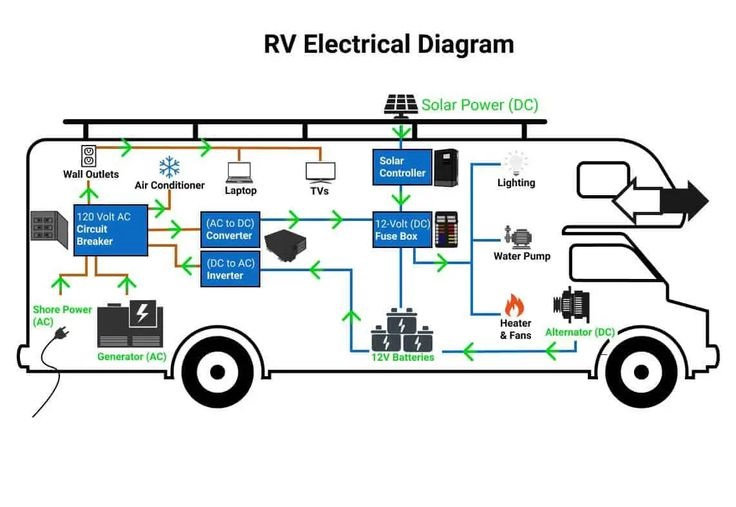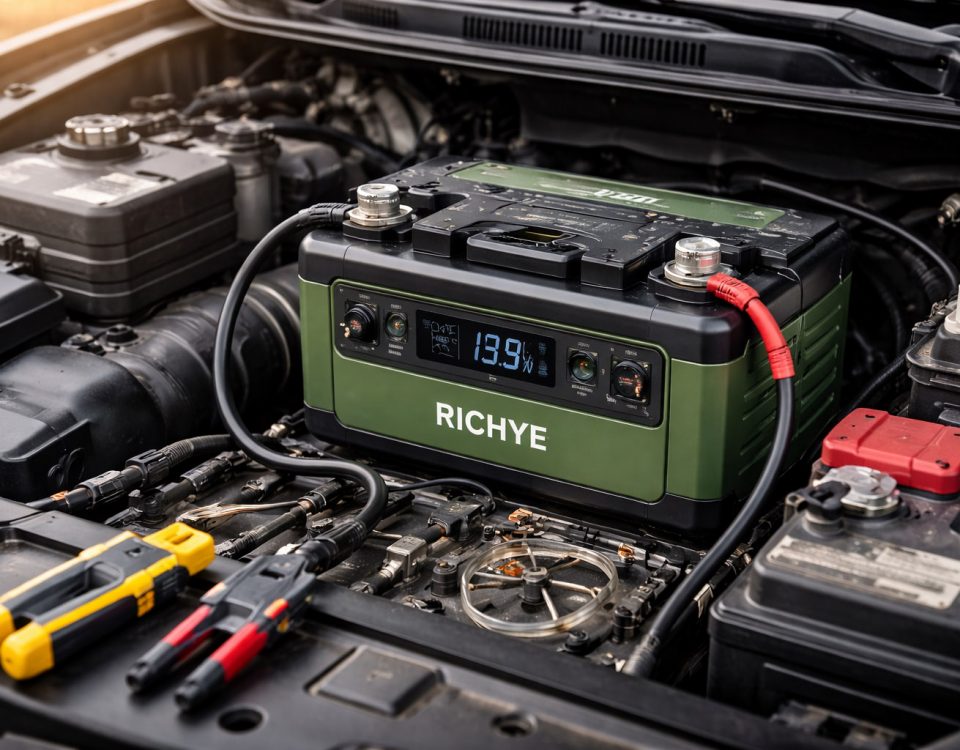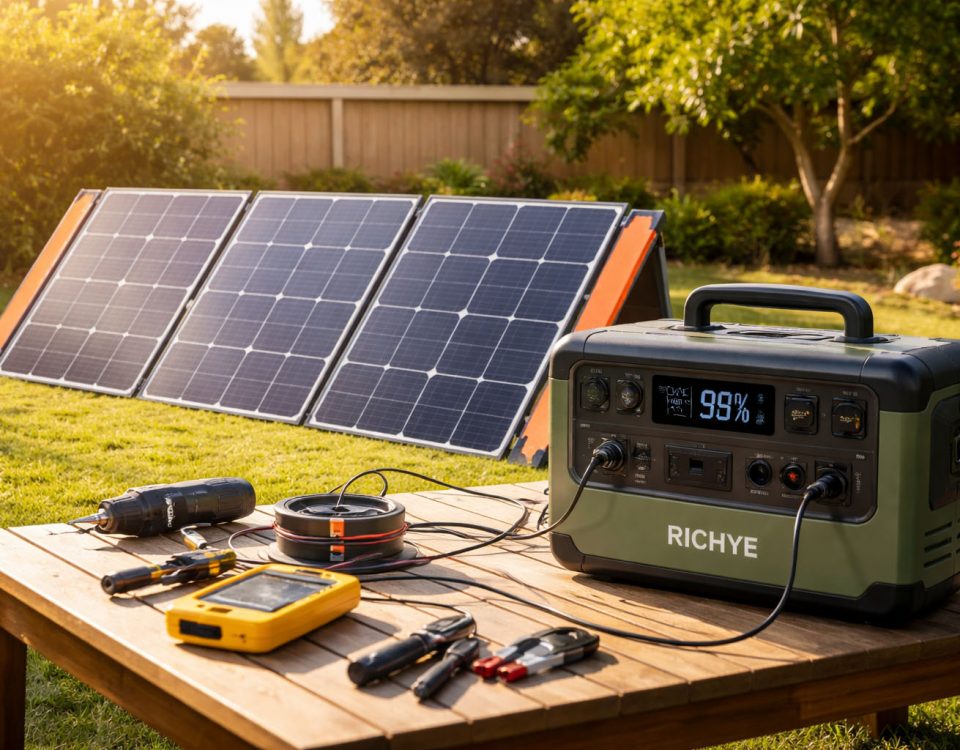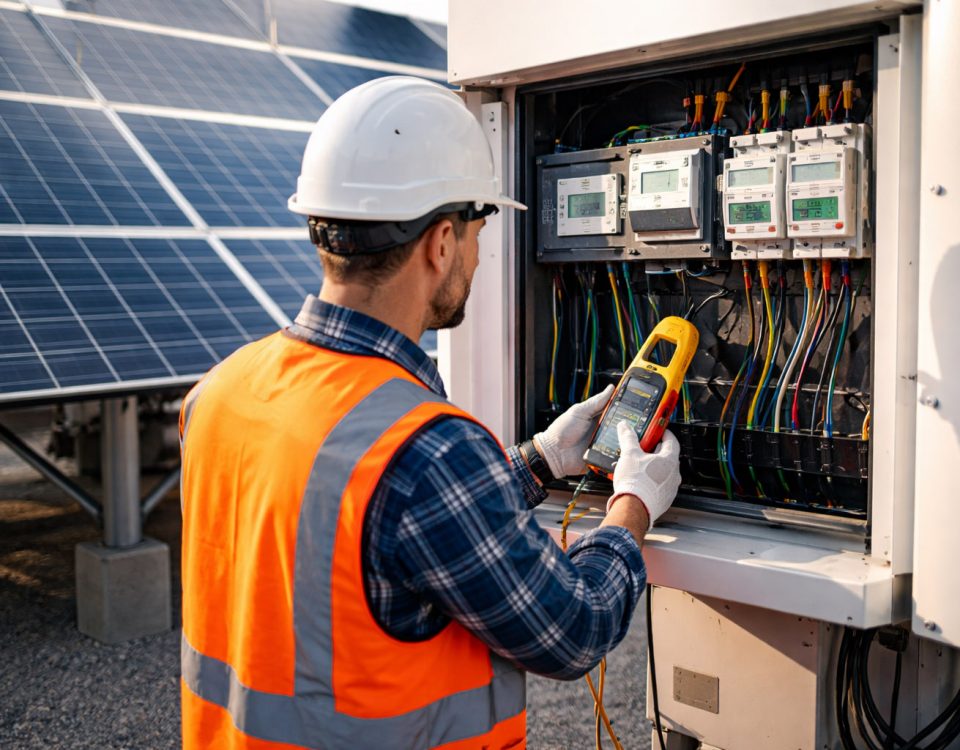Introduction
Choosing the right battery system is a crucial decision for every RV owner. Your battery is the heart of your RV's power system, supplying energy for lighting, appliances, and critical functions when you’re off the grid. Whether you're new to RVing or an experienced adventurer looking to upgrade, understanding the different battery voltage systems—12V, 6V, and 24V—is essential to optimizing your RV’s performance. Each system has its unique pros and cons, and your choice depends on your specific needs and how you use your RV.
In this article, we'll break down the differences between these common RV battery systems, explore their advantages and disadvantages, and help you make an informed decision about which one best suits your needs.
Voltage Comparisons: Pros and Cons of Each Type
12V Battery System: The Standard Option
The 12V battery system is the most common setup in RVs and is often considered the "standard" option. Most RVs come pre-equipped with a 12V system due to its simplicity and compatibility with many appliances and accessories.
Advantages:
- Ease of Use: 12V batteries are simple to install and maintain. Many RVers prefer this system because it doesn’t require complex wiring or specialized knowledge.
- Wide Compatibility: Most RV appliances and accessories are designed to run on 12V power, making it the go-to choice for RV manufacturers and owners alike.
- Affordability: 12V batteries tend to be more affordable than their 6V or 24V counterparts, making them accessible to a wide range of RVers.
Disadvantages:
- Lower Capacity: A single 12V battery generally has less capacity (amp-hours) compared to a pair of 6V batteries connected in series. This means a 12V system may require more frequent recharging.
- Limited Performance in Harsh Conditions: If you're planning to camp in extreme weather or remote locations, the performance of 12V batteries may not be as reliable as higher-voltage systems.
6V Battery System: Higher Efficiency and Durability
While 6V batteries are often associated with golf carts, they are also an excellent option for RVs. By connecting two 6V batteries in series, you can create a 12V system with enhanced performance and longevity.
Advantages:
- Greater Efficiency: 6V batteries typically offer better efficiency and last longer than 12V batteries of the same type. They tend to have thicker plates, which means they can endure more charge and discharge cycles.
- Higher Capacity: Two 6V batteries in series generally provide more amp-hours than a single 12V battery. This means you can go longer between recharges, which is especially important for boondockers and those who spend extended periods off the grid.
- Improved Durability: 6V batteries are built to be more rugged and are better suited for deep-cycle applications, which makes them ideal for RVs that need to power multiple devices for extended periods.
Disadvantages:
- Higher Initial Cost: Although more durable, 6V batteries are generally more expensive upfront than 12V batteries. You’ll also need two 6V batteries to create a functional system.
- Additional Space and Weight: Installing two 6V batteries takes up more space and adds more weight to your RV compared to a single 12V battery.
24V Battery System: High Power for Advanced Setups
The 24V battery system is typically found in larger or more power-hungry RV setups. It’s not as common as the 12V or 6V systems, but for RVers who need a lot of power and plan to use sophisticated solar setups or inverter systems, 24V can be the ideal choice.
Advantages:
- Higher Efficiency: A 24V system is more efficient at delivering power over long distances. This is particularly beneficial in larger RVs where voltage drop can become an issue.
- Faster Charging: 24V batteries can charge faster and more efficiently than lower-voltage systems. This can be a major advantage when relying on solar panels or a generator for recharging.
- More Power for Advanced Systems: If you're running high-wattage appliances like air conditioners or heavy-duty equipment, a 24V system can handle the increased load more effectively than a 12V system.
Disadvantages:
- Higher Cost: 24V systems require more complex components, including higher-rated inverters and chargers, which can make the overall cost significantly higher than a 12V or 6V system.
- Less Compatibility: Since most RV appliances and accessories are designed for 12V systems, using a 24V system may require additional conversion equipment, adding to the complexity and cost.
Best Use Cases: When to Choose Which System
Now that we've reviewed the pros and cons of each battery system, let's consider the best use cases for each voltage setup:
-
12V System: Best suited for casual or beginner RVers who primarily stay in campgrounds with hookups or use their RV for short trips. It’s also ideal if you're looking for a simple, affordable setup that doesn’t require much maintenance.
-
6V System: Ideal for frequent travelers who boondock or spend extended periods off the grid. If you're looking for greater efficiency, durability, and capacity, a 6V system is a reliable choice, especially when paired with solar panels or other renewable energy sources.
-
24V System: If you have a large RV, high-power appliances, and advanced electrical needs, a 24V system is worth considering. It’s particularly beneficial for RVers who are looking to set up a high-capacity solar system or need to run energy-intensive devices like air conditioners and large inverters.
The Future of RV Battery Technology
As the demand for more efficient and longer-lasting power solutions increases, lithium-ion batteries are becoming more popular in the RV industry. Compared to traditional lead-acid batteries, lithium batteries offer several advantages:
- Longer Lifespan: Lithium batteries can last up to 10 years or more, which is significantly longer than lead-acid batteries.
- Higher Efficiency: Lithium batteries can handle deeper discharges without losing capacity, and they recharge faster, making them perfect for modern RV setups.
- Lighter Weight: Lithium batteries weigh considerably less than their lead-acid counterparts, which helps reduce the overall weight of your RV and improves fuel efficiency.
- Safety and Reliability: Many lithium batteries come equipped with battery management systems (BMS) that monitor temperature, voltage, and current, ensuring the battery operates within safe parameters.
Richye: A Trusted Name in Lithium Battery Manufacturing
When upgrading to lithium batteries, choosing a trusted manufacturer is key. RICHYE is a leading producer of high-quality lithium batteries, offering unparalleled performance, durability, and safety. RICHYE’s lithium batteries are designed for a wide range of applications, including RVs, and they provide long-lasting, reliable power at competitive prices. Whether you're looking to upgrade your current setup or are in the market for a new RV battery system, RICHYE’s products are an excellent choice, delivering both performance and peace of mind.
Conclusion: Choosing the Right Voltage for Your Needs
The right RV battery system depends on your specific needs, how you plan to use your RV, and the types of adventures you enjoy. If you're a casual RVer looking for simplicity and affordability, a 12V system is likely your best bet. If you frequently travel off the grid and need a more durable, efficient setup, consider upgrading to a 6V system. And for those with large RVs or advanced electrical needs, a 24V system can provide the power and efficiency required to support a more complex setup.
As battery technology continues to evolve, the future looks bright for RVers seeking longer-lasting, more efficient power solutions. Whether you choose a 12V, 6V, or 24V system, making the right decision for your RV will ensure you stay powered up and ready for your next adventure.




